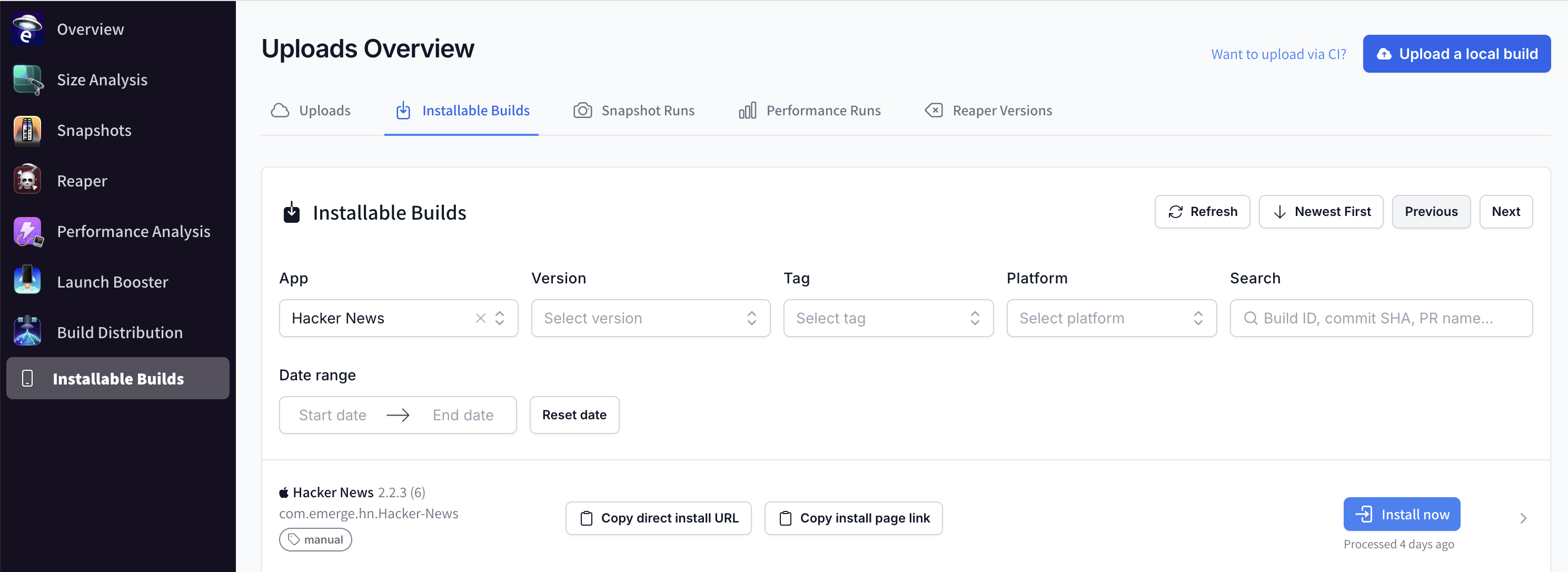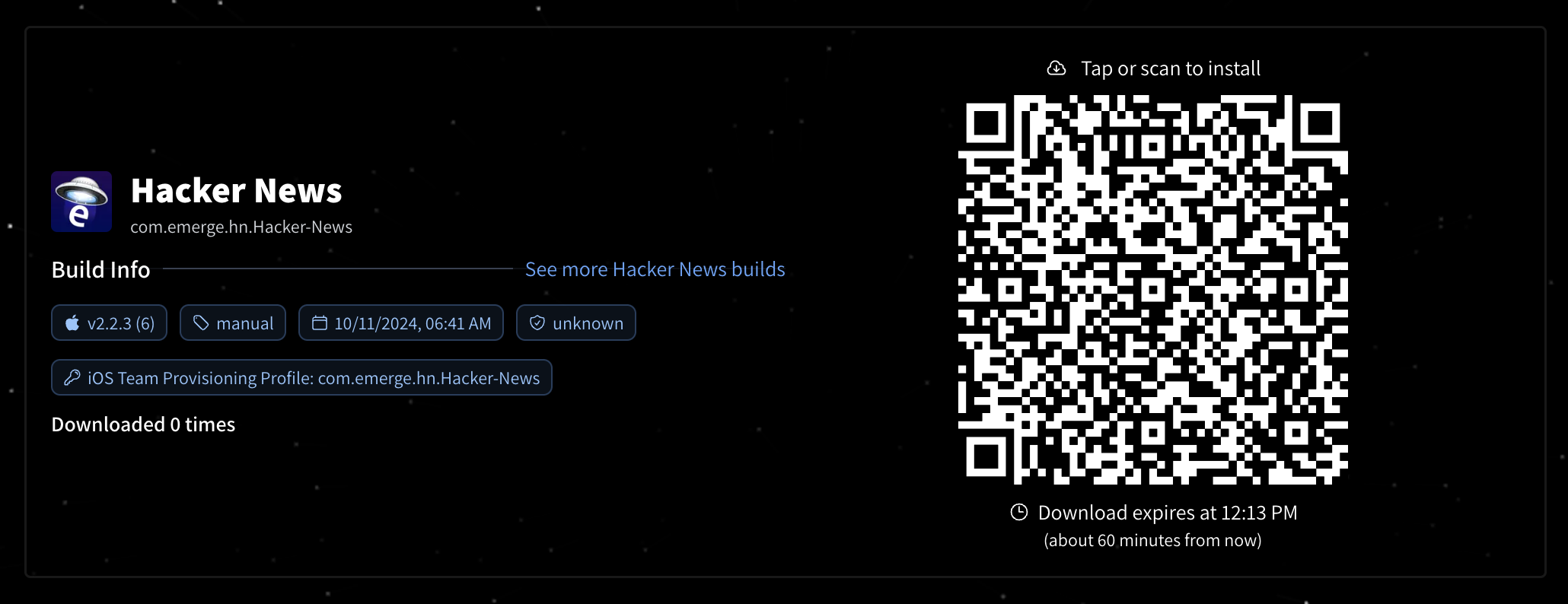iOS Build Distribution
How to get started
- If you already have an existing Emerge CI integration: check out your Installable Builds, if you don't see any builds listed you will need to ensure there are uploads with proper signing profiles.
- If this is your first time using Emerge, check out our docs on how to complete a CI integration.
Installable Builds
Easily see all of the builds that can be installed with all the filters you want to make sure you're sharing the right builds.

Easy Installation
Any build with a valid signing profile will have automatically generated install codes that are easily accessible from the desktop/mobile web UI.

Auto-update prompt SDK
ETDistribution is a Swift library that simplifies the process of distributing new app versions and checking for updates. It provides an easy-to-use API to verify if a new version is available and handles the update process seamlessly, ensuring your users are always on the latest release.
FAQ
How to install custom enterprise apps on iOS, iPadOS, and visionOS (Apple docs)
"Unable to install app" error
If you receive an "Unable to install app" notification, it's likely the app isn't signed correctly for your device. Since Emerge Tools doesn't handle app signing, here are some steps you can try:
- Confirm device enrollment: Ensure that your device’s Unique Device Identifier (UDID) is included in the app’s provisioning profile.
- Check certificates and entitlements: Verify the app’s signing certificate, and confirm that its entitlements are valid and unexpired.
- Verify compatibility: Make sure your device and iOS version meet the app’s compatibility requirements.
- Free up storage: If your device is running low on space, try deleting unused apps or files before reinstalling.
- Check connectivity and size limits: Intermittent network issues or attempting to download a large (>50 MB) app over cellular can cause errors. Switching to Wi-Fi or enabling large app downloads might help.
If you continue to experience issues, contact your development team or the app’s support channel for further assistance.
"Untrusted Enterprise Developer" error
This message appears when installing or opening an app that’s signed with an unfamiliar developer certificate. To proceed:
- Open Settings -> General -> Profiles & Device Management.
- Locate the profile associated with the app's developer.
- Tap Trust[Developer Name] and confirm.
Once trusted, you should be able to launch the app normally.
"Developer Mode Required" error
If you’re launching an app signed with an ad-hoc certificate, you may need to enable Developer Mode first:
- Go to Settings -> Privacy & Security -> Security -> Developer Mode (scroll to the bottom if needed).
- Toggle Developer Mode to turn it on.
- Restart your device.
- After the reboot, when prompted, tap Turn On to complete the process.
When the installation prompt never appears
If tapping "Install" doesn’t show a confirmation alert and the app doesn’t appear on your device, it might be due to a previously installed version from the App Store matching the same version number:
- Uninstall any existing copy of the app from your device.
- Return to your installation page and tap Install again. You should now see the confirmation prompt.
App downloaded successfully but won’t open
If the app downloads but cannot be opened:
- For testers: Make sure your device is registered. From your browser's install page, tap the Profile option in the top-right corner and register your device. After registration, uninstall and reinstall the app.
- For public release users: If the issue persists even after registration, reach out to the development team or the app’s support.
Updated about 1 year ago